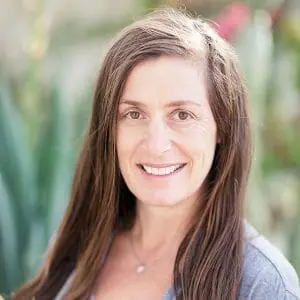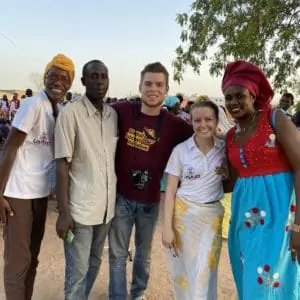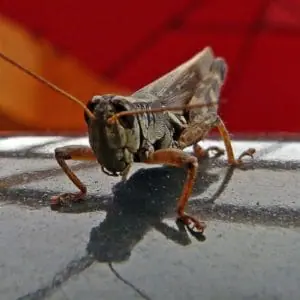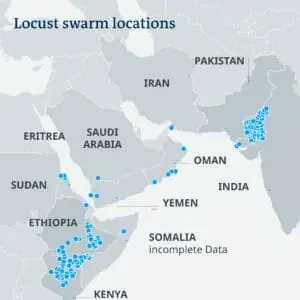SDG 15 - Life on Land

ASU expert proposes a biodiversity-focused solution to prevent zoonotic diseases
COVID-19 may have jumped from a wild animal market in Wuhan, China, to people. If so, it’s not the first deadly disease to spring from nature. Middle East respiratory syndrome

A project drawdown for biodiversity
An Ensia opinion article by ASU Center for Biodiversity Outcomes Founding Director Leah Gerber was published on the 50th anniversary of Earth’s Day, identifying viable solutions to combat biodiversity loss through Project Drawdown. Project

COVID-19 linked to environmental degradation
Leah Gerber recommends solutions to combat future infectious diseases and predicts that if we do not enforce action to alleviate environmental degradation, pandemics will occur more frequently around the globe.

MSUS student travels to Senegal to help workshop locust booklets
This article was written by William H. Walker VI, a sophomore in the School of Sustainability. Edited December 2, 2020 by Alana Burnham. From left to right: Team members Fatou
NSF CAREER awarded to Arianne Cease
Most CAREER awards are given on second or third submissions. For Cease, the third submission was the charm. Junior faculty interested in applying for a CAREER award should contact the Global Futures Laboratory Research Development Office.

Locust plagues are devastating countries across Africa
Right now, there are hundreds of billions of locusts wreaking havoc on vegetation across Africa. Experts are sounding the alarm, including United Nations humanitarian chief Mark Lowcock, who said the

Current locust swarms emphasize the importance of GLI researchers
Pakistan. Somalia. Ethiopia. Kenya. Locust swarms of near biblical proportions are currently wreaking havoc across a wide swath of southwest Asia and east Africa. According to the United Nations, the
New research by ASU professor furthers understanding of dryland litter cycles
Arizona State University professor Heather Throop penned a new research article that advances our understanding of dryland litter cycles. Drylands are arid ecosystems characterized by a lack of water. According
Gerber is lead author on global biodiversity assessment
Leah Gerber, director of ASU's Center for Biodiversity Outcomes, was a lead author on the United Nations Intergovernmental Science-Policy Platform on Biodiversity and Ecosystem Services (IPBES) global assessment.
Streamlining the study of nature in cities
Nancy Grimm, an Arizona State University professor in the the School of Life Sciences and a senior sustainability scientist, won an award for being part of a team that created
To save life on Earth, here’s the $100 billion-a-year solution
Greg Asner, director of the new ASU Center for Global Discovery and Conservation Science, is one of 19 international authors with a bold new science policy proposal — "A Global Deal for Nature" — to reverse the tide of Earth's first human-made biodiversity catastrophe.
ASU hosts third annual Phosphorus Forum in Washington, D.C.
Arizona State University's Sustainable Phosphorus Alliance hosted its third annual Phosphorus Forum at the ASU Barrett and O'Connor Center in Washington, D.C., on April 5. A packed room brought together